
To mark our seventh anniversary on August 1, 2017, we announced the inaugural Brittle Paper Literary Awards, to recognize the finest, original pieces of African writing published online. The awards come in five categories: Fiction, Poetry, Nonfiction, Essays/Think Pieces, and the Anniversary Award for works published on our blog. The winners in the fiction, poetry, creative nonfiction and essays/think pieces categories will receive $200 each, while the winner of our Anniversary Award will receive $300. The winners will be announced on October 23, 2017.
The 8 Nominees for the Brittle Paper Award for Essays/ Think Pieces
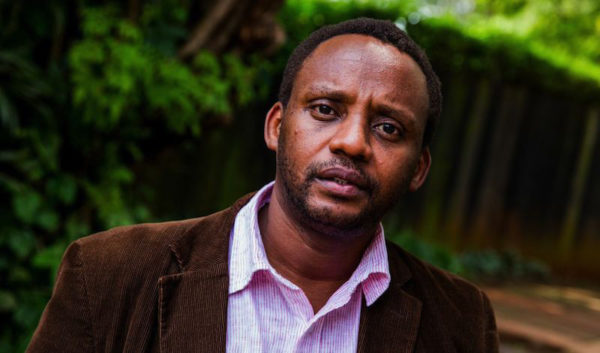
Billy Kahora (Kenya), for “Penpoints, Gunpoints, and Dreams: A History of Creative Writing Instruction in East Africa” in Chimurenga
Billy Kahora is the Managing Editor of Kwani Trust and has edited seven issues of Kwani? journal. He has twice been shortlisted for the Caine Prize, in 2012 for “Urban Zoning,” and in 2014 for “The Gorilla’s Apprentice.” His story, “Treadmill Love,” was commended by the 2007 Caine Prize judges. He is the author of the non-fiction novella The True Story of David Munyakei and the screenplay for Soul Boy, and co-author of the script for Nairobi Half Life. He is a contributing editor to the Chimurenga Chronic.
A few years earlier, p’Bitek had joined Ngugi at the University of Nairobi, after being dismissed as the director of the Uganda Cultural Centre for having criticised the government. Taban Lo Liyong, the first African to graduate from the Iowa Writers Workshop, followed in 1968. Together they managed to change the name of the Department of English Literature to the Department of Literature. A key part of this transformation was challenging the division between theory and praxis. Writing workshops were integrated into the curriculum and the examination allowed for one paper to be replaced by a piece of creative writing.
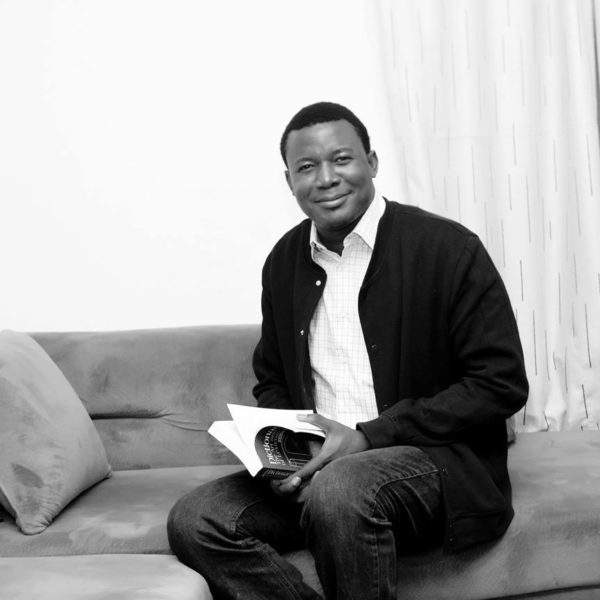
Kola Tubosun (Nigeria), for “In the Shadow of Context” in Enkare Review
Kola Tubosun’s work has appeared in Aké Review, Brittle Paper, International Literary Quarterly, Maple Tree Literary Supplement, and in the anthology Literary Wonderlands. He is the winner of the 2016 Premio Ostana “Special Prize” for his work in indigenous language advocacy.
However, the Caine Prize had branded itself over time as a prize for upcoming and emerging voices in African literature. The prize was launched, according to its website, “to encourage and highlight the richness and diversity of African writing by bringing it to a wider audience internationally.” That could suggest that previous prize-winners, already exposed to the wider international audience, deserved to be excluded before the submissions are sent to the judges. Not doing this in 2015 meant that something was askew. Realizing that the entries were not even sent blind to the judges raised the question: what exactly were the judges assessing? Or, put another way, was there anything that they were prevented from using as means of assessment?
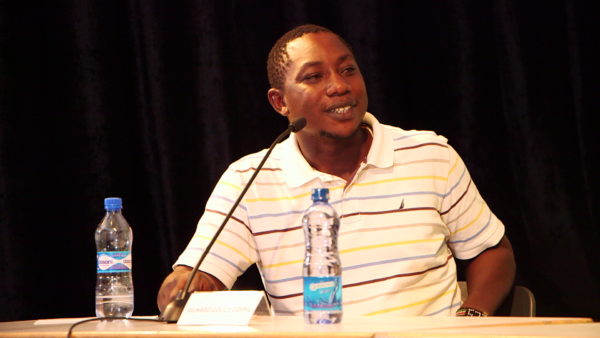
Richard Oduor Oduku (Kenya), for “Poverty Porn: A New Prison for African Writers” in Richardoduor.wordpress.com
Richard Oduor Oduku is a post-cynical humanist, a researcher, writer, editor and poet. He studied Biomedical Science and Technology and works as a Research Consultant, in Nairobi. He has been published widely and was longlisted for the 2015 BSFA Awards, and shortlisted for the 2016 Brunel International African Poetry Prize. He is a Founding Member of Jalada Africa, is Program Manager for the Trust, and was the Festival Coordinator for the 2017 Jalada Mobile Festival. He is a Board Member of Youth on the Move (NGO, Kenya), and Nonfiction Editor at Panorama – The Journal for Intelligent Travel, among others.
I also keep wondering about the limits of fiction, or any other art for that matter, or why it must be read as anthropological or ethnological, especially for writings coming from Africa. I don’t understand the desire to impose our total order (in terms of how we view the world) on all creative productions. I think there is space for viewing the novel(s) as a world on its own, and when we draw parallels of similarity/difference with our world , there is space for not being to restrictive or not being prescriptive of what we would have preferred.
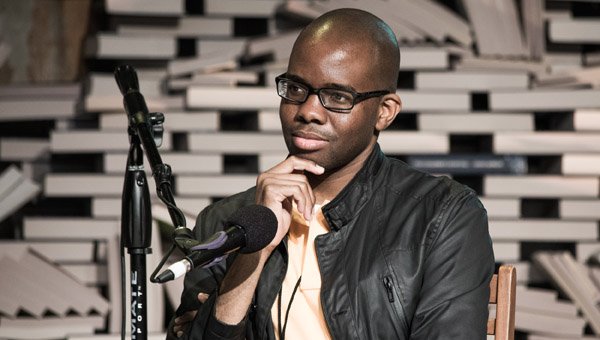
Tope Folarin (Nigeria), for “An Architect of Dreams: On Ngugi wa Thiong’o’s Devil on the Cross” in Los Angeles Review of Books
Tope Folarin is a Nigerian-American writer. He won the 2013 Caine Prize for his short story “Miracle” and was shortlisted again in 2016 for “Genesis.” His fiction has appeared in Transition, the Virginia Quarterly Review, and Callaloo. In April 2014 he was named in the Hay Festival’s Africa39 project. He was a 2004 Rhodes Scholar and a 2004 Galbraith Scholar at Harvard University’s Kennedy School of Government. He has served on the board of the Hurston/Wright Foundation.
Another dream: A group of Europeans envision a future in which they have apportioned the continent of Africa among their respective countries. Everything on the continent — its resources, its land — will belong to them. The people who currently inhabit the continent — “people” is a generous term, because they aren’t quite — will be incidental. They will provide free labor. Free sex. Most importantly, they will serve as living reminders that the Europeans are superior, the inevitable rulers of the world.
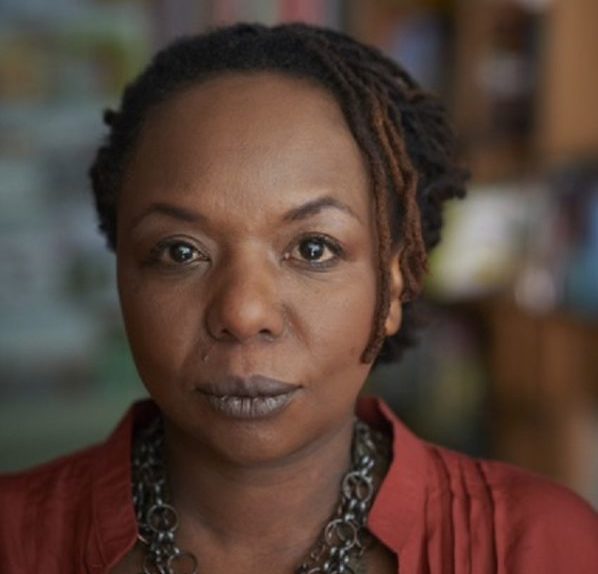
Ellah Wakatama Allfrey (Zimbabwe/UK), for “When We Talk about Kintu” in Brittle Paper
Ellah Wakatama Allfrey is a Zimbabwean-born editor and critic. She was the previous Deputy Editor of Granta. She was Senior Editor at Jonathan Cape, Random House. She sits on the boards of the Writers’ Centre Norwich and Art for Amnesty, and is Deputy Chair of the Council of the Caine Prize and a patron of the Etisalat Prize for Literature. In 2011 she was on the judging panel of both the David Cohen Prize and the Caine Prize. In 2012 she was chair of the fiction panel for the BOCAS Prize for Caribbean Literature. In 2013 she was chair of the Commonwealth Writers’ Prize. In 2015 she was a Man Booker Prize Judge. She is currently on the panel for the 2017 International Dublin Literary Award. She is Series Editor of the Kwani? Manuscript Project and the editor of Africa39 (Bloomsbury, 2014), Let’s Tell this Story Properly (Commonwealth Writers/Dundurn Press, 2015), Flamingoland and Other Stories (Spread the Word, 2015), and Safe House: Explorations in Creative Nonfiction (Cassava Republic Press, 2016). Her journalism has appeared in the Telegraph, the Guardian and the Observer and she is a contributor to the book pages of NPR. Her introduction to Woman of the Aeroplanes by Kojo Laing (Pearson, African Writers Series) was published in 2012. A Fellow of the Royal Society of the Arts, she was awarded an OBE in 2011 for services to the publishing industry. In 2016 she received a Culture for Service Award from Goshen College, from where she graduated in 1988.
Make no mistake; I firmly believe that thoughtful critical responses are crucial to the cementing of literary works as part of our culture and heritage. I would have welcomed (and encouraged others to read) Bady’s essay had it been part of a considered publicity campaign and appeared in a newspaper article or journal review. But I emphatically disagree with the decision to ‘explain’ Kintu in the way the adding on of an Introduction at the beginning of the new edition declares. It’s that basic premise that agitates me. But if all of us, around the world, can read Mantel or Melville or Murakami, why do we think American readers can’t be trusted to read Makumbi?
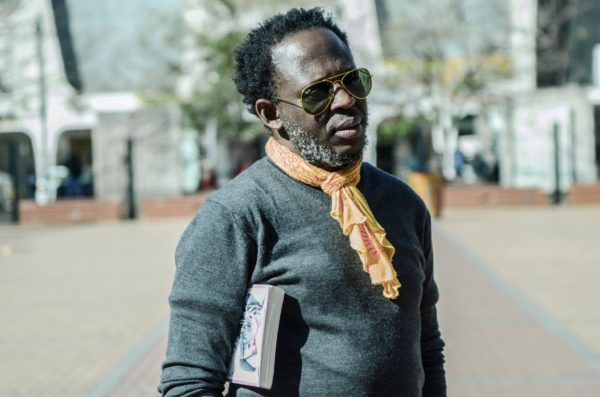
Bongani Madondo (South Africa), for “Writes of Passage, an Urban Memoir: How a Pan-African Journal and American Glossies Put Bongani Madondo on the Write Path” in The Johannesburg Review of Books
Bongani Madondo is an essayist, biographer and writer of short futurist fiction. His collection of essays, Sigh, the Beloved Country, was shortlisted for the 2017 University of Johannesburg Prize. His other books includes Hot Type (2007) and I’m Not Your Weekend Special: Portraits on the Life+Style & Politics of Brenda Fassie (2014). He has contributed monographs and lectures on the politics of style, film and African innovations of modernist expressions such as Jazz and Punk Rock at the Museum of Modern Art (MoMa), Warsaw, and Haus Kulturen der Welt in Berlin. His work has appeared in The New York Times, The Economist’s Rome-based policy periodical Internazionale, Transition, Mail&Guardian, Sunday Times, Readers Digest and Rolling Stone. He directs Giant Steps, an independent Public Arts and Social Discourse platform that aims to bridge the gaps and explore new storytelling innovations between the Streets, Visual arts, Urban Spaces and Rural Roots, Performance and Critical Theory.
The first issue of Vibe magazine — which I’ve archived to this day — reeked of an insubordinate don’t-fuck-with-me air. On the cover — a profile portrait penned by Kevin Powell — was a proto-nativist image of a fiercely fit, topless African man who could be anywhere in any period. Gazing him at the photograph, images of turn of the centuries (19th, and 20th) missionaries and ‘explorers’ resurfaced from the self-suppressed subconscious. Africans in Sundiata Keita’s Bamako. Images of Dinka tribal warriors in the Sudan, or, the Congo, never just Sudan, not Congo, the strikes at their race-fabled ‘hearts of darkness’ strutted with their shimmering, blue-black, National Geographic-sized ripply bodies, across my mind.
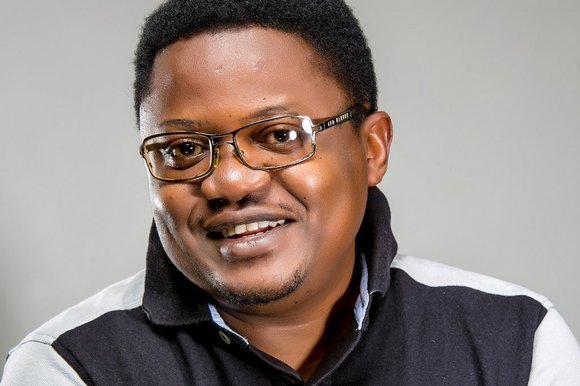
Rotimi Babatunde (Nigeria), for “The Labours of the Months: Of Work and Its Refuseniks” in Praxis
Rotimi Babatunde is a writer and playwright. In 2012, he won the Caine Prize for his short story “Bombay’s Republic.” In April 2014, he was named in the Hay Festival’s Africa39 project. In 2015, his short story “The Collected Tricks of Houdini” was longlisted for the Sunday Times EFG Private Bank Short Story Award. His plays have been broadcast on the BBC World Service and presented at London’s Institute of Contemporary Arts, the Swedish National Touring Theatre, and the Halcyon Theatre, Chicago. He is also a winner of BBC World Service’s Meridian Tragic Love Story Competition as well as the AWF Cyprian Ekwensi Prize for Short Stories.
Judge Saveleva would have found Unoka guilty of the allegation levelled against Brodsky, just as Oblomov would have been subjected to the same penance the Abbot of St Zeno had to endure in Purgatory. Evidently, sloth and social parasitism, conceptualised centuries apart, are just two sides of a coin: the devil always invents crimes for idle hands. But Brodsky was busy writing poetry, Oblomov reflecting on existence as if he were a precursor to Paul Valéry’s Monsieur Teste, Unoka playing the flute, Danda causing mischief, and the Palm-wine Drinkard traversing the realms of the living, the dead and the unborn in search of his tapster. So they were employed in activity of some kind. Rather than convicting the aforementioned of sloth or social parasitism, a judge with a penchant for fine—even if ultimately immaterial—linguistic distinctions might find it more fitting to convict them all of another charge: play.
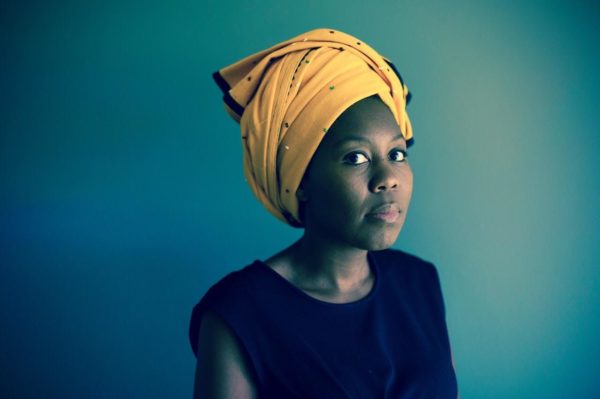
Sisonke Msimang (South Africa), for “All Your Faves Are Problematic: A Brief History of Chimamanda Ngozi Adichie, Stanning, and #BlackGirlMagic” in Africa Is a Country
Sisonke Msimang is the author of the memoir Always Another Country. She studied in Macalester College, Minnesota, U.S.A. and the University of Cape Town, and has been a Yale World Fellow, an Aspen New Voices Fellow, and a Ruth First Fellow at the University of the Witwatersrand. Her essays appear in The Guardian, The Daily Maverick, The New York Times, and Africa Is a Country. A TED Talk she gave touches on the events in Always Another Country. She is Programme Director for the Centre for Stories, Perth, Australia.
The difference is of course that Adichie is not Angelina Jolie. She has staked her reputation on substance and heft and thoughtfulness. Yet the disappointment amongst members of LGBTI and feminist communities I spoke with after Adichie’s comments were published, went deeper than that and it is important to examine that disappointment and what it speaks to. In part, Adichie’s over-reach is again bigger than her. It is a consequence of a growing culture of stanning. Adichie has been steeped in a celebrity culture that has created the Beyhive – which functions as an emotional bodyguard for the singer; and she has been embraced and championed by the black girl magic movement. Stanning is not merely being a fan, it often involves taking on an active and confrontational stance in relation to defending one’s celebrity. The celebrity becomes an extension of the fan – a persona who stands in for the identities of those who love him or her.









My Books of 2017 « ktravula – a travelogue! December 09, 2017 08:38
[…] literary essay In the Shadow of Context was published in Enkare Review. It was later nominated for the Brittle Paper Award for Think Pieces. In June, I contributed an essay titled Wetin Dey? Nigerian Pidgin and its Many Pikin as a preface […]